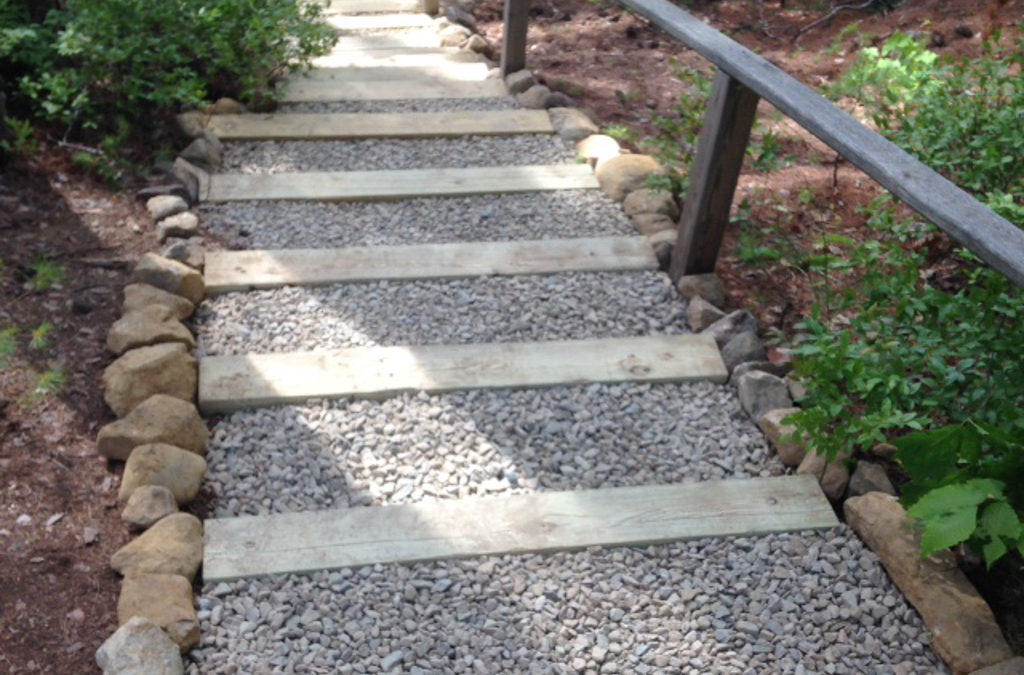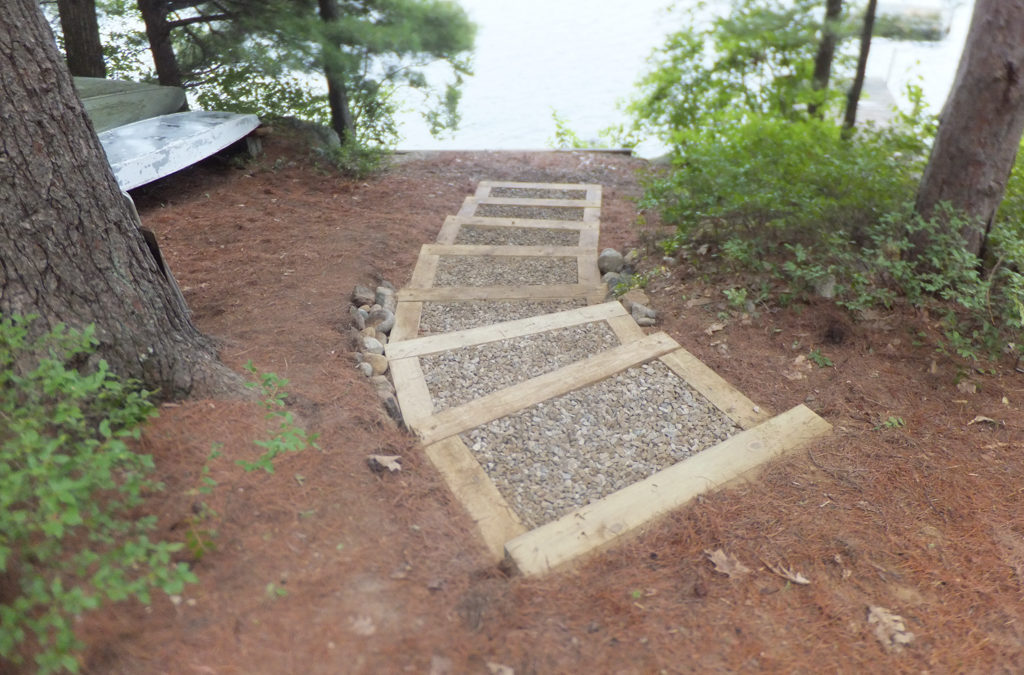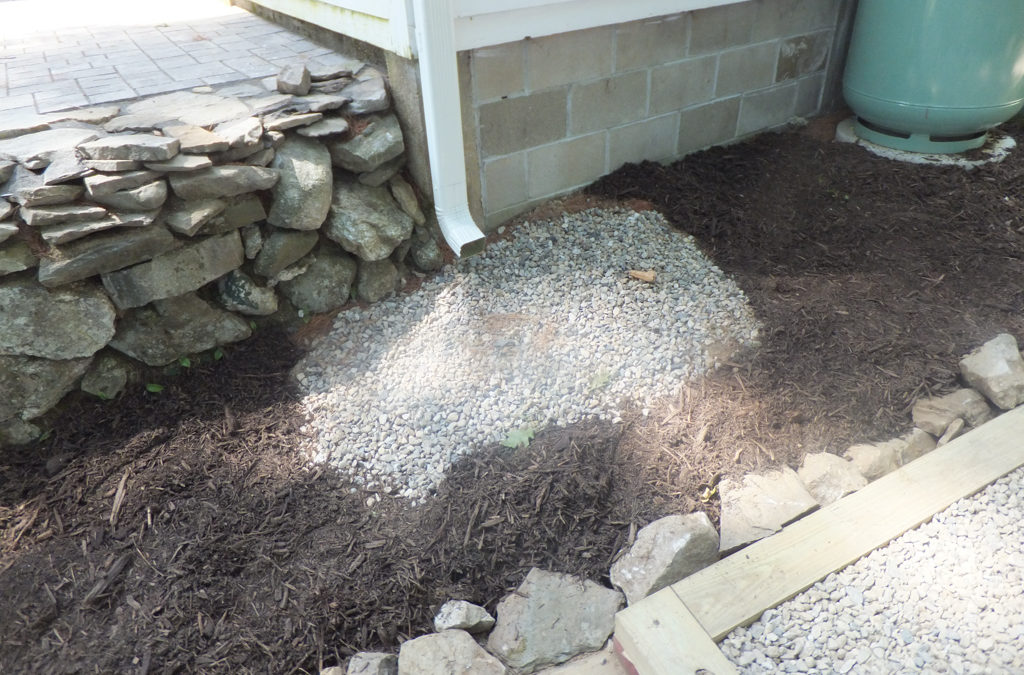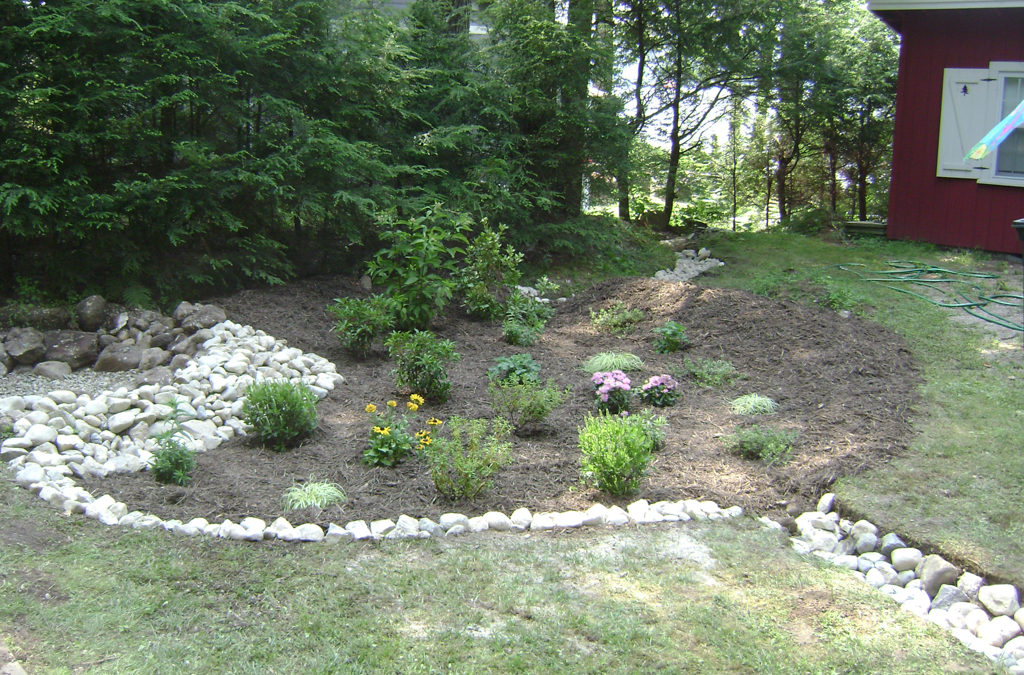
by Rich Collins | Mar 24, 2019 | Best Management Practices
Retrofitted Infiltration Steps Retrofitting steps to control erosion on paths. Purpose: Infiltration steps use crushed stone to slow down and infiltrate runoff. They are effective on moderate slopes, but consider building wooden stairways on 1:1 slopes (45°) or areas...

by Rich Collins | Mar 19, 2019 | Best Management Practices
Infiltration StepsControlling erosion on steep paths. Purpose: Infiltration steps use crushed stone to slow down and infiltrate runoff. They are effective on moderate slopes, but consider building wooden stairways on 1:1 slopes (45°) or areas where rocks or surface...

by Rich Collins | Mar 19, 2019 | AWWA Events
Due to the popular success of last year’s “Water Talks”, AWWA, the Gafney Library, and the Acton Public Library joined together again this year for a new round of “Water Talks”, a free series of presentations by experts in their fields. The talks are free and open to...

by Rich Collins | Mar 1, 2019 | Best Management Practices
Drywells and Detention Basins Purpose: Drywells collect and infiltrate runoff at gutter downspouts, and detention basins work great where large quantities of concentrated water flow off rooftops. These systems help control erosive runoff on your property, and reduce...

by Rich Collins | Feb 21, 2019 | Best Management Practices
Rain Gardens Managing roof runoff in your backyard Purpose: Rain gardens are attractive and functional landscaped areas that are designed to capture and filter stormwater from roofs, driveways, and other hard surfaces. They collect water in bowl- shaped, vegetated...






